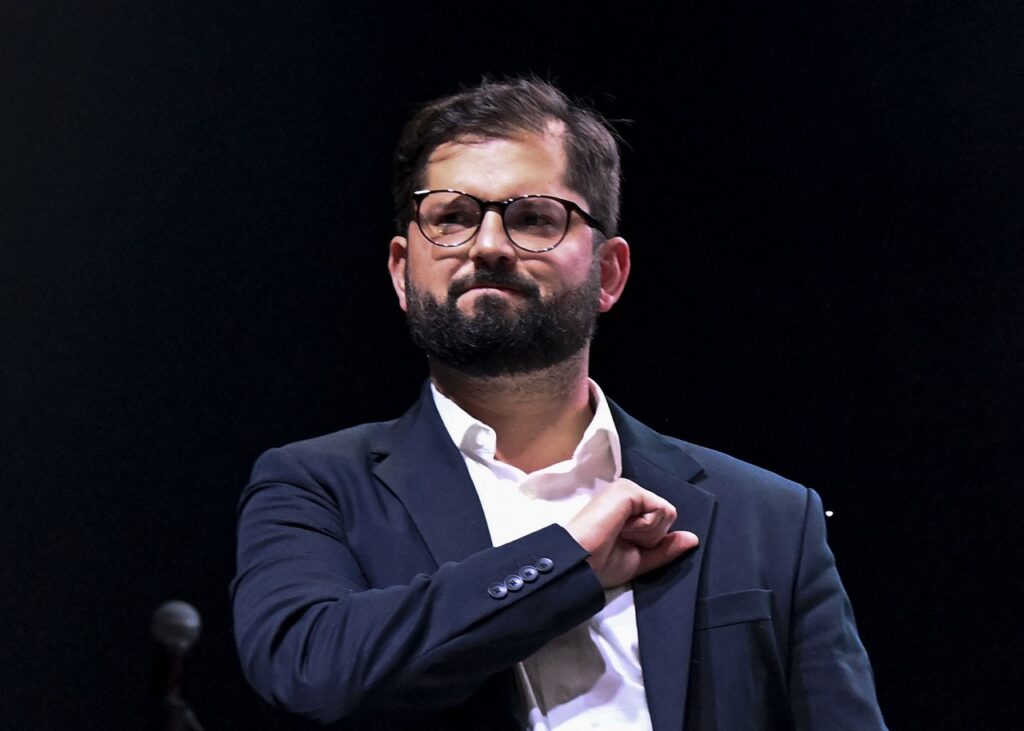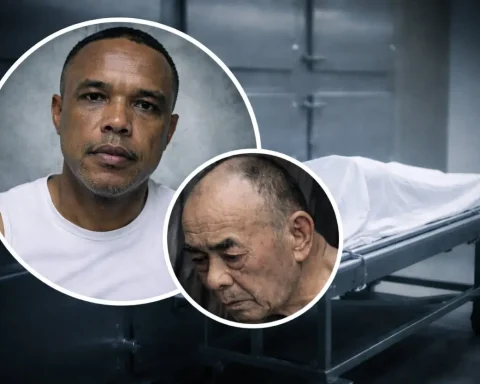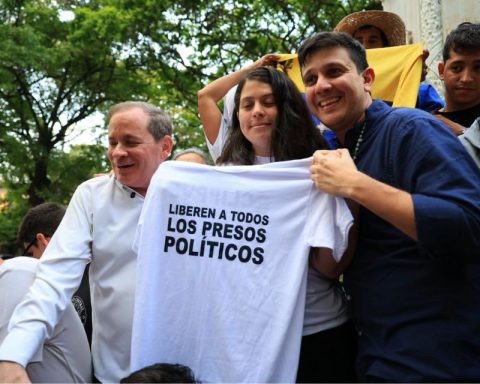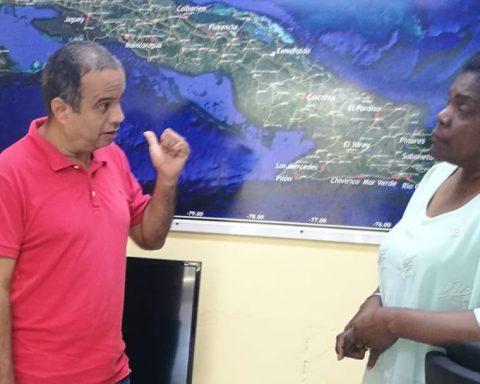What’s next now? How does a constituent conversation continue after the broad triumph of the Rejection? There are many questions that this result leaves. Various analysts believe that we will witness a process marked by uncertainty and the lack of early agreements on the right about the itinerary to follow, and this fuels fears that the constituent process, in its second stage, could stall indefinitely. And in this scenario, Congress plays a key role.
President Gabriel Boric himself was categorical when calling Congress for a broad dialogue to reach agreements and settle the constitutional issue. “Therefore, I make an honest call to all political forces to put Chile ahead of any legitimate difference, and agree as soon as possible on the deadlines and boundaries of a new constitutional process. They will count on me fully for the task of facilitating this understanding. of which, by the way, the National Congress should be the main protagonist,” said the president in his speech.
“To this end, first thing in the morning tomorrow I will meet with the presidents of both chambers and with other authorities of the Republic to advance as quickly as possible in that direction and, during the next week, we will carry out a round of talks to collect the proposals for the different sectors that have committed themselves before the country to establish a new Constituent Process”, added the President in his address. “We cannot let time pass or get involved in endless controversies. And it is that our compatriots, who are seeing us today in their homes, would not understand that political leaders, instead of mitigating their uncertainties, accentuated them, “he added.
The presidential invitation highlights the historical role that, from now on, Congress will have to play, although there is no clarity as to how it will continue. The concrete thing is that Chile Vamos has the key to decide, in Congress, whether or not to extend the process aimed at writing a text from a blank page, and this because there is also the possibility that it will refuse to change a comma of the current Constitution or, failing that, to decide to close the constituent question through modifications to the Constitution enacted during the dictatorship and reformed for the last time in 2005 by Ricardo Lagos Escobar.
“We have to be more open to dialogue. We are going to win by listening more, without sectarianism and improving the proposal that we have presented to the country,” declared Senator Yasna Provoste, who thus expressed the climate of dialogue that should prevail, also in Congress. “It will be necessary to clear up all the doubts that still persist. Let’s learn the lesson: to win, it is necessary that no one is missing, because unity is essential from the beginning,” he declared, while defining a basic floor of conversation: “We are going to maintain of the constitutional proposal everything that was widely accepted and we will propose, in the next Convention, the reforms that are already committed plus everything that we collect from the dialogue with the community”.
DC Senator Francisco Huenchumilla believes that, although some progress has been made with a constitutional reform that lowered the quorum for constitutional reform to 4/7, we must be cautious, since, beyond the words of agreement and his commitment to a new Constitution, the truth is that up to now this sector has not disclosed a clear and concrete plan that will allow doubts to be dispelled.
“Winning the Rejection, the 1980 Constitution remains in force. Faced with this scenario, numerous possibilities and a climate of uncertainty open up, because it is not known how the different political actors in the country will react. It is evident that this creates a very favorable scenario for the right and its allies, because they are going to have the key to how this process continues”, he pointed out. “When it was agreed to lower the quorum to 4/7, they no longer need the ruling party and center-left parties to gather those 4/7 of the votes, which they have in the Senate and in the Chamber of Deputies,” he added. .
Likewise, Huenchumilla suspects that the right is going to try to “focus the debate in Congress, because they know that they have the key, they know that they have the votes and they know that the quorum favors them, and they are going to try to get the President (Boric) and the Government are not the actors in charge of leading this process”. In this way, according to the senator, “what they are going to seek is to lead this process, and force the government to negotiate. That is the scenario that the right wanted, and it was the one that finally happened.”
“Let them not think that today’s victory is a carte blanche to think that they can make the reforms on their own. Since that text has been rejected, I hope that we can take a new path through popular sovereignty, which is representative,” added Huenchumilla, by way of warning.
The roadmap still does not appear
But the truth is that a roadmap has not yet appeared in Congress, even though the main referents of Chile Vamos assure that they will call for a great agreement with parliamentary headquarters to continue the conversation and close, once and for all, the constitutional question . However, the deputy RN Diego Schalper did not shed any light on how this matter should proceed in the future.
“We are going to meet with our parliamentarians, with the conventional ones and we will have meetings with our regional leaders to reach a formula. I would not advance anything, but what is quite clear is that we must move forward as soon as possible, that it take little time, “said the deputy. “It has to end with an exit plebiscite,” he adds, while he believes that some aspects of the rejected constitutional text may constitute a floor. “There are certain ideas that are quite curdled, such as the social state of law,” said Deputy Schalper, a situation that would allow time to be gained.
The parliamentarian was emphatic in affirming that “citizens must have a text that has 70% support”, for which he called on his sector not to repeat the maximalism that, in his opinion, the left showed throughout this process. Along these lines, Schalper was very critical: “It is a reflection that this progressive world must do, a world that has uprooted itself from deep Chile that does not go to meetings in La Alameda.”
Various leaders of the sector have assured that the result was so surprising that the most advisable thing for now is to process and digest the data that the plebiscite produced. Only after that will the time come to draw up an itinerary, and this will be possible after talking with other sectors, such as that center-left that decided to accompany them in rejecting the new constitutional proposal. Likewise, they ask that the Government define an interlocutor that favors understanding.
By the way: the president of Evopoli, Luz Poblete, does not have an outline of how this roadmap should be, although she warns that “the protagonist is going to be the citizenry. The only mandate that we have clear is to vindicate ourselves before it.” Regarding which institution has to take the initiative, Poblete declared that this “falls on Congress, which will have to agree in the most transversal way possible.” And the government of Gabriel Boric? “The government has to play a role. Will he be the protagonist? I do not know. The first thing you should do is reflect, evaluate his cabinet and dedicate yourself to governing. The campaign is over, so now you have to attend to social emergencies. We are going to honor our commitments,” she added.
However, the Evopoli helmsman maintained that it is not possible to rule out a plebiscite “to ask whether to make a new convention or if there should be a new convention but with different rules. But a basic principle is that the process that arises must be as participatory and representative as possible”, Poblete stressed.
The fears
What if the right decides to “take the ball home?” It is a possibility, but the analysts consulted believe that in no case should this be ruled out in a political scenario that has given plenty of signs of dynamism and confusion.
Pamela Poo, who chairs the Network of Political Scientists, fears that the slack achieved by the Rejection will embolden the most maximalist positions of Chilean conservatism, so it is not surprising that Chile Vamos, or a part of the coalition, decides to end the debate, or that it proposes to write a new text very similar to the current Constitution, only with declarations and a somewhat more “friendly” language for ordinary people, he maintains.
There is another element that can affect the decision. “We must understand that the right opened the door to the extreme right, which is pulling its entire sector to its most extreme position. Unfortunately politics today has a lot of performance, it is very performative, with a lot of video for Tik Tok, social networks, a lot of niche, etc. It is a time poor in content. There is no country project. The important thing is that with the result of this Sunday we have returned to Chile as far as possible, ”he adds.
Taking the ball home is certainly an option, agrees the social psychologist, anthropologist and academic from the University of Santiago, Sergio González, but it would be a very serious mistake for Chile Vamos to read this result as an ideological vindication of the “model”.
“There are issues that have no turning back. It is impossible to conceive of anything other than a Social State of Law, and in that sense the fence has been moved quite a bit. Same thing with parity. Today, a discourse that does not consider 51% of the population is inadmissible, in the same way that due recognition of the original peoples is denied, although nobody knows how it could be made viable. We are witnessing an important social change, a symbolic and epochal change that we cannot lose sight of despite the loose defeat of the Approval”, indicates the academic.
The UDI deputy Juan Antonio Coloma argued that “we are committed to having a new and good Constitution for Chile. And to advance in that we must reach agreements, slowly but surely. It is not about giving dates, but about looking for what unites us and leaving what divides us. Time must be given to agree on better rules. By rushing a day or two we achieve nothing. I don’t want to advance judgments regarding the form”.


















